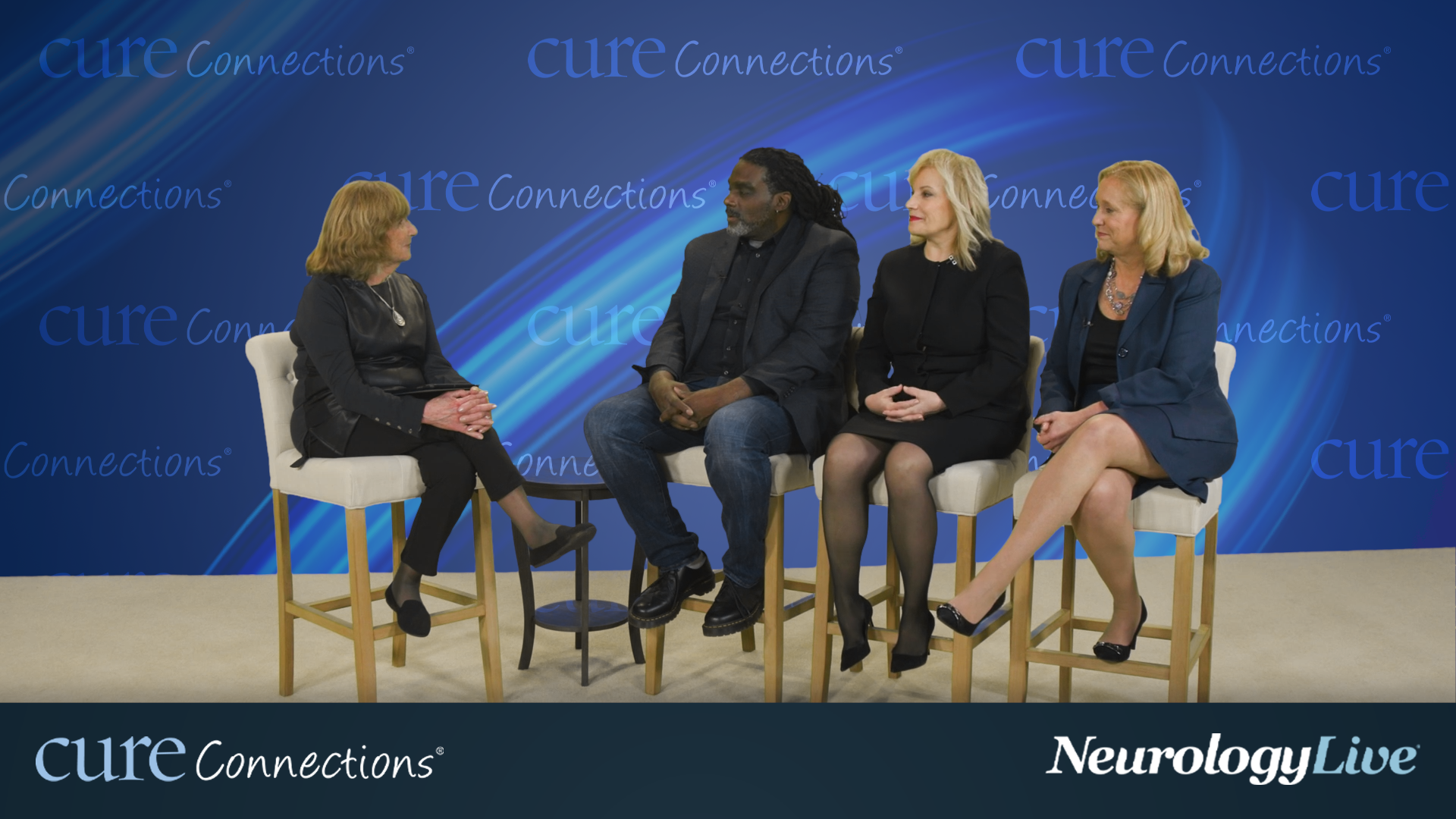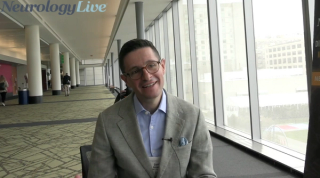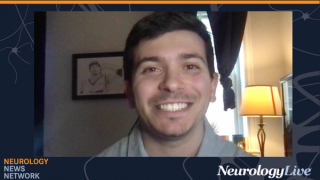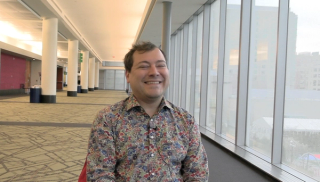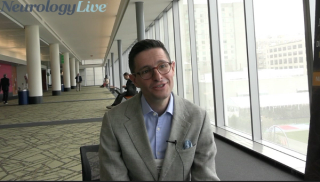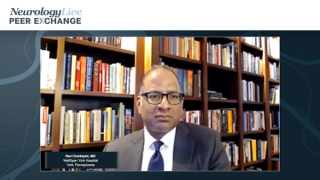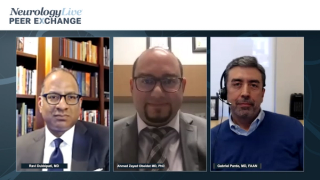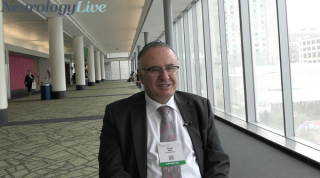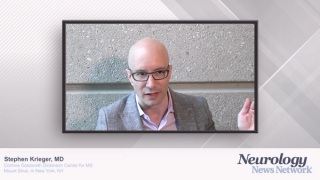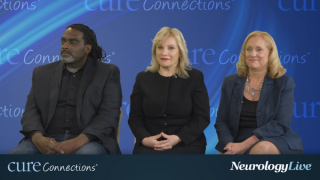
MS and Demyelinating Disorders
Latest News

Disease Activity in Early-Stage Relapsing MS Remains Minimal After 4 Years of Ocrelizumab Treatment
Latest Videos

CME Content
More News
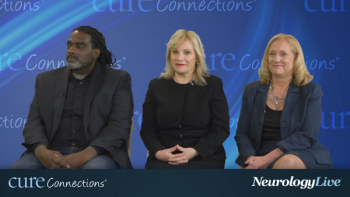
Craig Mainor and Gina Murdoch share peer-to-peer support resources for individuals living with multiple sclerosis.

Stephen Krieger, MD, discusses how cognition is defined in multiple sclerosis and the tools to evaluate patients' cognitive performance.

The data, from the phase 3 ASCLEPIOS I and II trials and ALITHIOS open-label extension, suggest that most patients remained free from disease progression, with most progression being independent of relapse activity.

Here's some of what is coming soon to NeurologyLive® this week.

An interim analysis showed no reduction in T-cell counts and their subsets as a consequence of B-cell depletion in the first year of treatment with ocrelizumab.
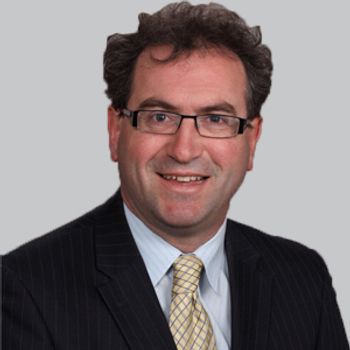
Updated results to the phase 3 CHAMPION-NMOSD trial of ravulizumab showed significantly lower HAI score worsening following treatment.

After 228 weeks of treatment, annualized relapse rates favored twice-daily 75 mg dosing of evobrutinib vs once-daily.

Test your neurology knowledge with NeurologyLive®'s weekly quiz series, featuring questions on a variety of clinical and historical neurology topics. This week's topic is the history of the American Academy of Neurology.

There were no observed tolebrutinib dose effect for treatment-emergent adverse events in the double-blind portion, as well as no new safety signals seen for those who crossed over in the open-label extension.

Take 5 minutes to catch up on NeurologyLive®'s highlights from the week ending April 21, 2023.

Mind Moments®, a podcast from NeurologyLive®, brings you an exclusive interview with Robert Zivadinov, MD, PhD. [LISTEN TIME: 30 minutes]

NMOSD-related optic neuritis represented the strongest predictive risk factor of failure to attain visual recovery of at least 0.3 logMAR, with an odds ratio of 10.47.

Collectively, the results suggested that multiple sclerosis and migraine may co-occur because they share several genetic variants, rather than migraine causing MS.
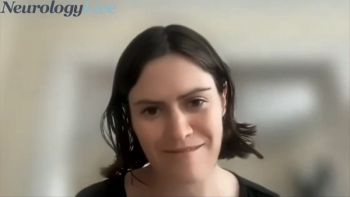
An immunology fellow at Brigham and Women’s Hospital provided perspective on the positive impacts a new diagnostic criterion for MOGAD brings to the clinical community. [WATCH TIME: 4 minutes]
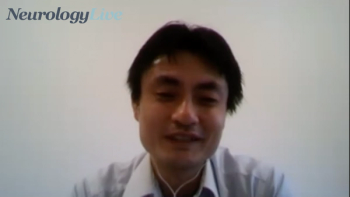
The research fellow at the Neuroimmunology Clinic and Research Laboratory, Massachusetts General Hospital and Harvard Medical School, talked about his research of cell function in NMOSD to be presented at the upcoming AAN annual meeting. [WATCH TIME: 6 minutes]

Sheryl Lapidus, MA, senior director of patient advocacy at Horizon Therapeutics, talked about the findings from a recently conducted patient survey on NMOSD and the importance of advocacy in the field.
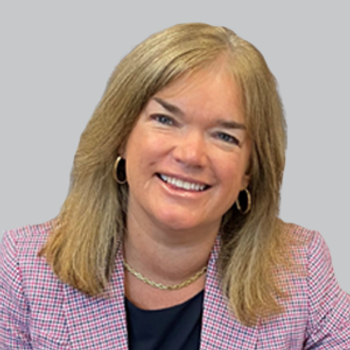
CSL Behring's subcutaneous immune globulin is the first and only immune globulin available in prefilled syringes for patients with primary immunodeficiency or chronic inflammatory demyelinating polyneuropathy.
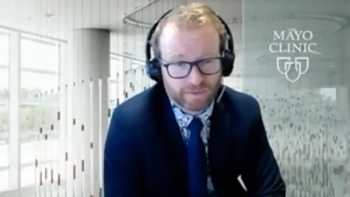
The neurologist at Mayo Clinic in Jacksonville Florida spoke about early detection, prevention, and time to intervene with treatment in autoimmune encephalitis. [WATCH TIME: 5 minutes]

The research fellow at the Neuroimmunology Clinic and Research Laboratory, Massachusetts General Hospital and Harvard Medical School, talked about having safer and more specific treatments for NMOSD that are antigen-specific. [WATCH TIME: 4 minutes]
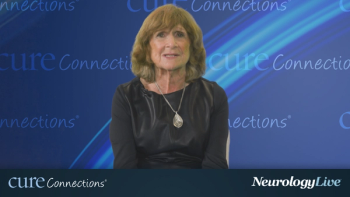
Craig Mainor and Dr Mary Ann Picone highlight the role of comprehensive care and importance of treatment adherence for people living with multiple sclerosis.
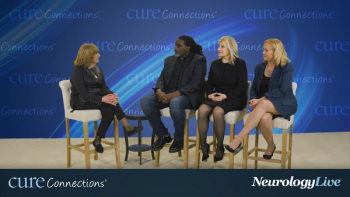
Craig Mainor, a patient with multiple sclerosis, shares the story of his diagnosis. The panel discusses the advances in diagnosis and management of multiple sclerosis in the last 30 years.

Here's some of what is coming soon to NeurologyLive® this week.

Test your neurology knowledge with NeurologyLive®'s weekly quiz series, featuring questions on a variety of clinical and historical neurology topics. This week's topic is stroke and cerebrovascular disease.

Take 5 minutes to catch up on NeurologyLive®'s highlights from the week ending April 14, 2023.

Evobrutinib, a highly selective BTK inhibitor, has previously demonstrated positive impacts on relapse rates and neurofilament light in patients with relapsing multiple sclerosis.




